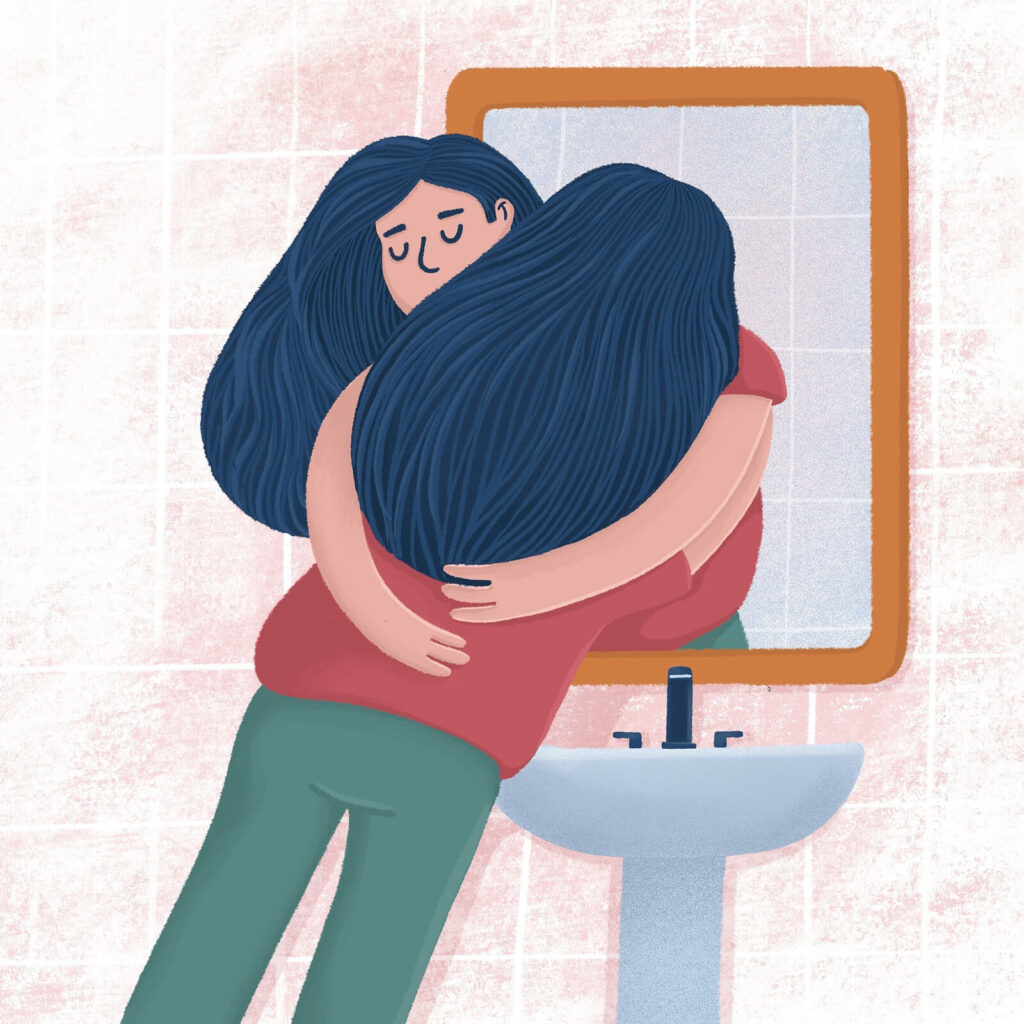What is Radical Acceptance?
Radical acceptance is a key concept and skill within Dialectical Behavior Therapy (DBT). Dialectical Behavior Therapy (DBT) is an evidence-based therapy developed by Marsha Linehan. It was designed to help those diagnosed with borderline personality disorder. Over time, DBT is effective in treating other mental conditions such as depression, anxiety disorders, eating disorders, and substance abuse. In DBT clients participate in skills training where they learn and practice skills. This includes mindfulness, interpersonal effectiveness, emotion regulation, and distress tolerance. Radical acceptance is taught as part of distress tolerance, a module that aims at improving your ability to effectively manage difficult feelings and situations.

Radical acceptance is experiencing a situation and accepting what is happening in the present without judgment or resistance. It builds on the idea that pain is inevitable, but suffering is optional. To move forward from distressing situations, you must accept reality for what it is. Therefore, releasing your expectations of how things should be or how you want them to be. This means that you stop trying to change the situation or fight against what you have no control over. Instead, accept it and focus on what you do have control over – your feelings.
What does it involve?
Radical acceptance involves acknowledging and accepting what is happening in the present moment, rather than fighting against it. This does not mean that you like or approve of the situation or that you are giving up without trying to change it. Instead, you are choosing to recognize that the situation exists and cannot be changed, while still being open to taking action when necessary.
Let’s say you unexpectedly lost your job. Instead of reacting with anger, despair, or self-criticism or saying things like, “This is not how things are supposed to be” you can practice radical acceptance by acknowledging and accepting the situation as part of your current reality. You can recognize that this is not what you wanted or expected, but it is what is happening right now. You can then focus on what you can control, like updating your resume, networking, or looking for new job opportunities.
Why Practice Radical Acceptance?
Radical acceptance can help individuals become more emotionally resilient by teaching them to accept difficult emotions and situations. All without becoming overwhelmed. When we learn to accept difficult situations in the present, we become better equipped to deal with challenges in the future.

As we know, pain cannot be avoided – it is a natural part of life. Resisting reality turns your pain into suffering. It also doesn’t actually change reality, it simply denies what exists. Trying to control or change things that are out of your control causes increased feelings of anxiety, depression, and stress. With radical acceptance, you can reduce these feelings by learning to let go and shift your focus to things that are in your control.
Practicing Radical Acceptance
At this point, you may be asking, how exactly does one practice radical acceptance?
The first step in practicing radical acceptance is to identify the situation or aspect of your life that you are fighting against. This may include past events, current events, something someone did to you, something you did, etc. Describe the situation non-judgmentally, meaning only using facts.
Next, acknowledge that the situation is, it is neither good nor bad, but just is. Remind yourself that there are things out of your control and as distressing or unpleasant as the situation may be, it cannot be changed. Repeat statements like “I can’t change this, and that’s okay” or “This is just how things are.”
Once you have acknowledged that reality is just as it is, let go of the need to control or change situations that you cannot. Accept reality all the way by engaging your whole self – mind, body, and spirit. Be mindful of any emotions or physical sensations that come up as you are trying to accept. Allow the grief, sadness, and disappointment to arise within you knowing that they are just emotions.
Final Thoughts from a DBT Therapist in Charlotte, NC
Practicing radical acceptance can be challenging but it can be done with lots of practice and patience. The many benefits of radical acceptance are reasons why someone may want to embody this skill. As you embark on this journey, be compassionate and understanding with yourself. If you are struggling with tolerating some of life’s difficulties, consider working with a DBT therapist at Kind Mind Psychology. A therapist who specializes in DBT can help you develop the skills and strategies for practicing radical acceptance and other coping mechanisms.

Are You Ready to Embrace Radical Acceptance?
Life’s challenges are inevitable, but how you respond to them is within your control. If you’re feeling stuck, overwhelmed, or struggling to let go of situations beyond your control, our DBT therapists at Kind Mind Psychology are here to help. We specialize in guiding individuals toward greater emotional resilience through skills like radical acceptance. Contact us today to learn how Dialectical Behavior Therapy can help you find peace, regain control over your emotions, and build a life worth living.
- Reach out today to learn how we can support you on your journey to emotional well-being.
- Explore more DBT skills for anxiety, depression, and more by reading our blogs.
- Begin dialectical behavior therapy and live with more peace of mind!
Other Services We Offer in New York and North Carolina
In addition to DBT therapy, we offer group therapy that creates a welcoming space where you can connect with others, share experiences, and feel empowered as part of a supportive community. For those within the LGBTQIA+ community, our LGBTQIA+ therapy is a compassionate and affirming space where you can explore your identity and celebrate who you are. We also offer couples therapy, helping partners strengthen their bond. If you’re seeking to heal from past trauma, our specialized EMDR therapy and Internal Family Systems (IFS) therapy can guide you toward lasting healing and emotional resilience. Whatever you’re facing, we’re here to help you thrive.

